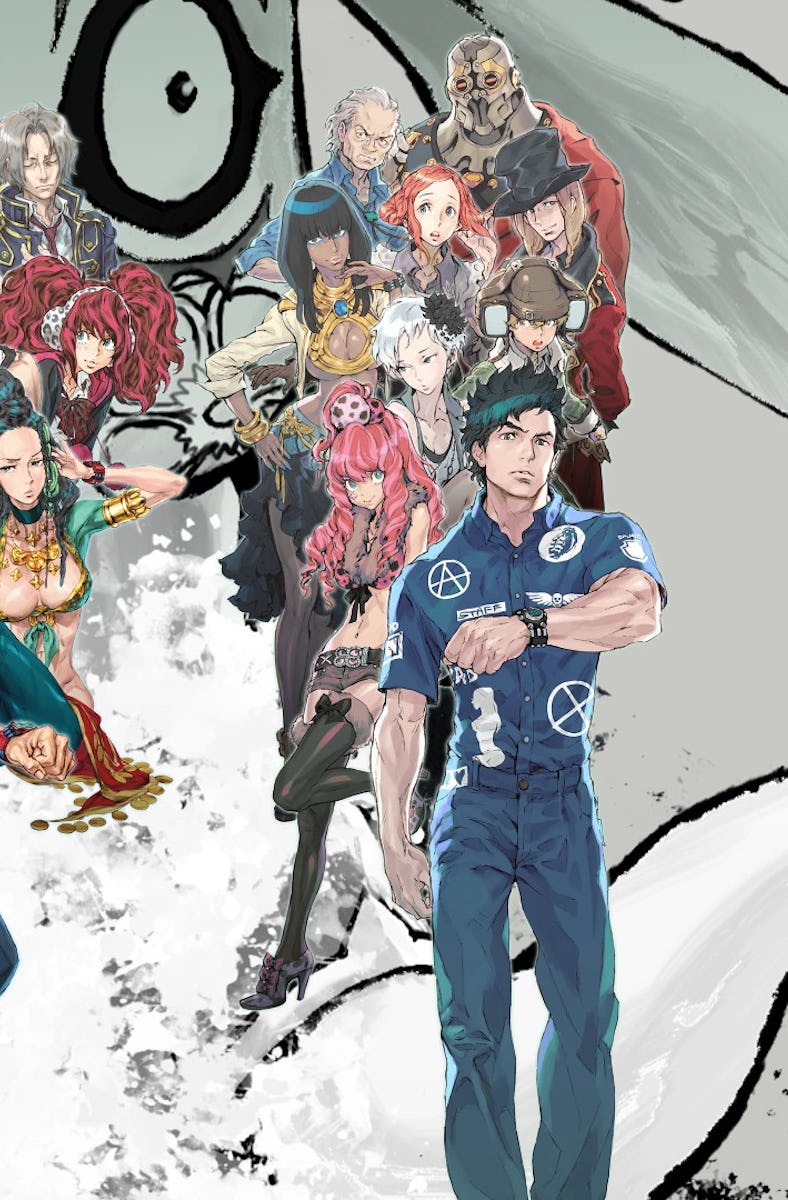You Need to Play the Best Time-Travel Trilogy Ever Made ASAP
A non-linear masterpiece.

The Zero Escape trilogy is like smashing Saw together with a cerebral time travel story like Steins;Gate, while sprinkling in a bit of the wacky character of Danganronpa. Each of the three games is a wildly inventive experience that truly pushes the bounds of the visual novel genre, weaving twisty stories that are some of the very best in any game.
With the whole trilogy currently on sale on Steam, there’s never been a better excuse to pick it up.
The Zero Escape trilogy is made up of three games:
- 999: Nine Hours, Nine Persons, Nine Doors
- Zero Escape: Virtue’s Last Reward
- Zero Time Dilemma
While each game stands on its own, they do tell an overarching narrative that comes to an interesting head in Zero Time Dilemma, with some fantastic payoff for players that have been there the whole way.
Each game features a cast of certified weirdoes, who inevitably end up much more complex and well-rounded than they initially appear.
Each game is set up as an escape-room scenario, where a group of characters are kidnapped by an enigmatic entity known as “Zero,” and forced to go through a number of trials and mental games. That basic setup is compelling enough and creates some serious drama between these strangers suddenly thrust together.
However, the real twist comes when you get to the “ending” of the first game, 999. Suddenly it becomes apparent this is a time-travel story, and you’ll need to piece your way through different timelines and decisions to reveal the full story and find out the truth.
All three games use this format but introduce more unique gimmicks; Virtue’s Last Reward heavily focuses on sci-fi and introduces more robust escape rooms, while Zero Time Dilemma is played entirely out of chronological sequence, making for some fascinating narrative puzzle solving.
The real crux of what makes these games stand out, however, is the quality of writing and character development. Part of the joy of these experiences is learning about the wild cast of characters, and unraveling everyone’s ulterior motives. Looking at 999, for example, the game initially casts its characters as overt anime stereotypes, from the white-haired delinquent Santa to the flippant and self-serving woman Lotus.
Virtue’s Last Reward and Zero Time Dilemma are much more interactive than 999, featuring more puzzles, escape rooms, and some truly harrowing decisions.
As you make your way through the narrative these stereotypes start to show cracks, revealing more complex characters, often with tragic backstories, underneath. At no point does the game forget about any single character, as each one has a plotline that carries through the entire experience.
Another surprisingly charming aspect of Zero Escape is the trilogy’s odd obsession with pseudoscience and philosophy. The director of the trilogy, Kotaru Uchikoshi (who’d go on to make AI: The Somnium Files and its delightful sequel), loves to play around with heady ideas, often weaving in and explaining actual concepts like the Butterfly Effect and The Experience Machine. Leaning into scientific theories works well because of the visual novel format, allowing the games to revel in complex storytelling.
The Zero Escape trilogy is a phenomenal example of non-linear storytelling. Each game is engrossing in its own right, but when the overall trilogy is put together it's a remarkable achievement in narrative storytelling, reinforced by gameplay that gets more interesting and robust with each entry. There’s nothing else quite like the Zero Escape games, which is why they’re still a must-play to this day.
Zero Escape: The Nonary Games (includes 999 and Virtue’s Last Reward) is available for PS4 and PC. Zero Time Dilemma is available for PC, PS4, and Xbox One.
This article was originally published on